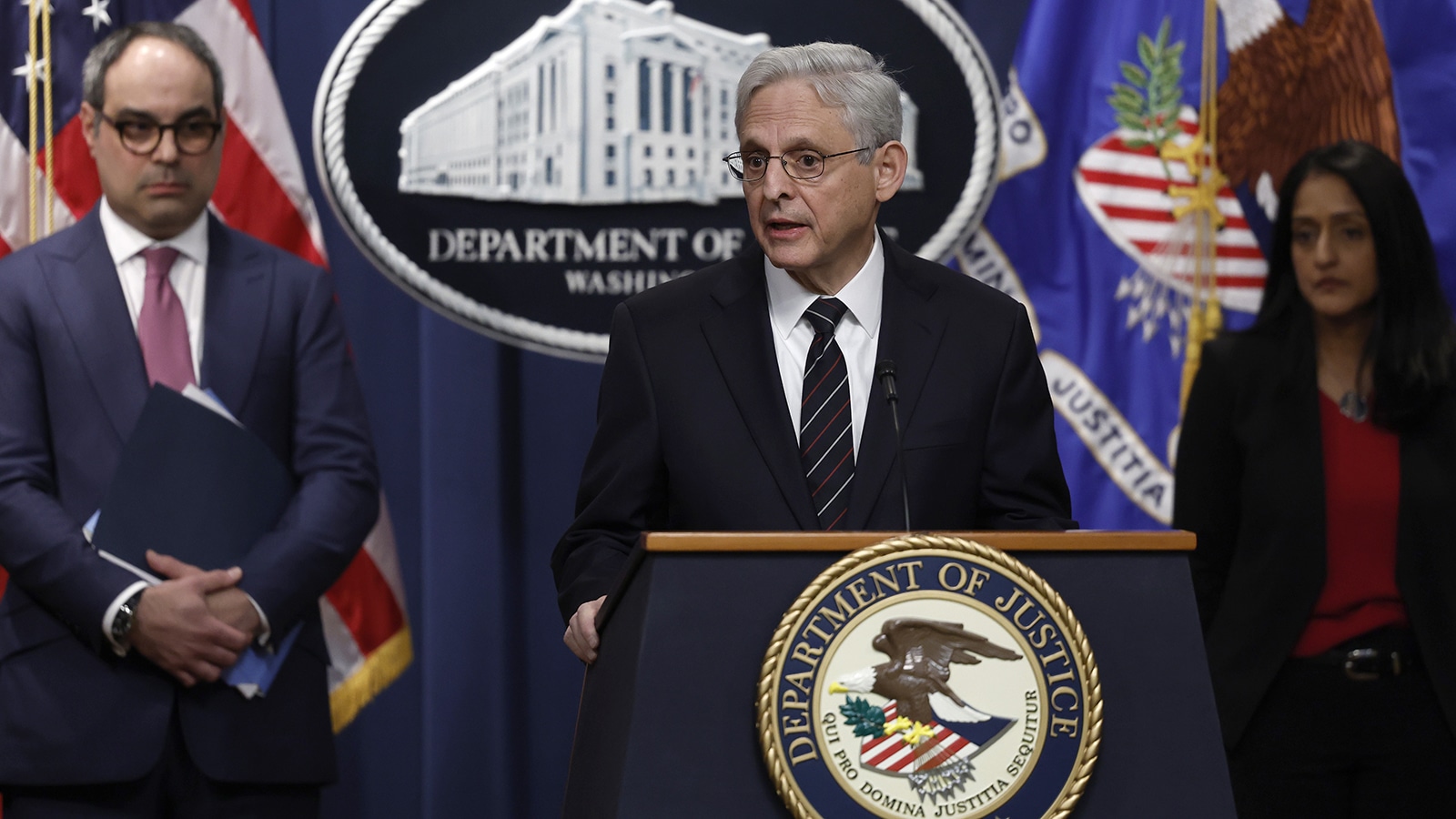OPINION: This article may contain commentary which reflects the author's opinion.
Seven people have been indicted by the United States Department of Justice in what it called a “sophisticated” scheme to steal around $100 million from the IRS using stolen identities.
“On March 7, a federal grand jury in Austin returned an indictment, unsealed today, charging seven individuals with conspiracy to commit mail and wire fraud and other crimes arising out of their scheme to defraud the IRS using stolen identities,” the department said in a press release.
“According to the indictment, from 2018 through 2021, Abraham Yusuff, of Round Rock, Meghan Inyang, of San Antonio, Christopher Eduardo, of Round Rock, Christian Mathurin, of Nashville, Tennessee, Dillon Anozie, of San Antonio, Babajide Ogunbanjo, of Austin, and Aydin Mammadov, of Houston, engaged in a conspiracy to claim fraudulent tax refunds using the stolen identities of accountants and taxpayers by filing at least 371 false tax returns claiming over $111 million in refunds from the IRS,” it said.
“Yusuff allegedly recruited and directed Eduardo, Mathurin, Anozie, Ogunbanjo and Mammadov to provide addresses to him that could be used in the scheme. Yusuff and others then allegedly registered with the IRS, posing as authorized agents of multiple taxpayers using stolen information relating to the taxpayers and their real tax preparers. The conspirators then allegedly directed the IRS to change the addresses on file for the taxpayers and to send their tax information, including account transcripts and wage records, to the addresses controlled by the conspirators. The conspirators then allegedly used this information to electronically file tax returns claiming fraudulent refunds and directed the refunds the IRS to split the refunds among several prepaid debit cards. Prior to issuing tax refunds to some taxpayers, the IRS allegedly sent verification letters to the addresses controlled by the defendants, and the defendants and others, pretending to be the taxpayers, instructed the IRS to release the refunds,” the department said.
“The indictment also charges that Yusuff, Inyang, Eduardo, Anozie, Ogunbanjo and Mammadov obtained the prepaid debit cards that were to be used to receive the fraudulent refunds and that once the refunds were deposited onto the prepaid debit cards, they laundered the funds by purchasing, among other things, money orders from local stores in amounts low enough to avoid reporting thresholds. Yusuff and others also allegedly used the prepaid debit cards and money orders to purchase designer clothing, home renovation materials and used cars at auction. The indictment alleges that all defendants kept or received money orders purchased with the fraudulent refunds as their share of the illegal proceeds,” it said.
“The indictment charges each defendant with varying crimes, including mail and wire fraud, conspiracy to commit mail and wire fraud, aggravated identity theft, money laundering and access device fraud. If convicted, they face a maximum sentence of 20 years in prison for the mail and wire fraud and the conspiracy of said fraud, 20 years for money laundering, 10 years for access device fraud, and a mandatory sentence of two years for aggravated identity theft. In addition to any term of imprisonment, each of the defendants also faces a period of supervised release, monetary penalties, restitution and forfeiture. A federal district court judge will determine any sentence after considering the U.S. Sentencing Guidelines and other statutory factors,” it said.
In January U.S. Supreme Court justices expressed skepticism and directed tough questions at the Biden administration in a closely-watched case involving damage to private property along a Forest Service road.
“Justices appeared skeptical of the Justice Department’s argument that property owners couldn’t bring a case against the government because of a 12-year limit on when a lawsuit could be filed. The case, Wilkins v. United States, involves a road leading to the Bitterroot National Forest in Montana, on which the Forest Service had an easement allowing for public access,” Greenwire reported.
“But two property owners say it was rarely used for that purpose until the agency in 2006 posted a sign on the road — ‘public access thru private lands’ — that attracted more visitors, who trespassed on their land and, in one instance, shot an owner’s cat. Assistant to the Solicitor General Ben Snyder took some of the most spirited questioning, including from Justice Elena Kagan, who dove into the government’s interpretation of drive-by statements in past cases to argue that the 12-year statute of limitations should preclude the complaint,” the outlet added.
“Unless we have a clear statement that that was what was litigated, why would we try to give stare decisis to issues that weren’t identified by the court?” Kagan asked Snyder.
